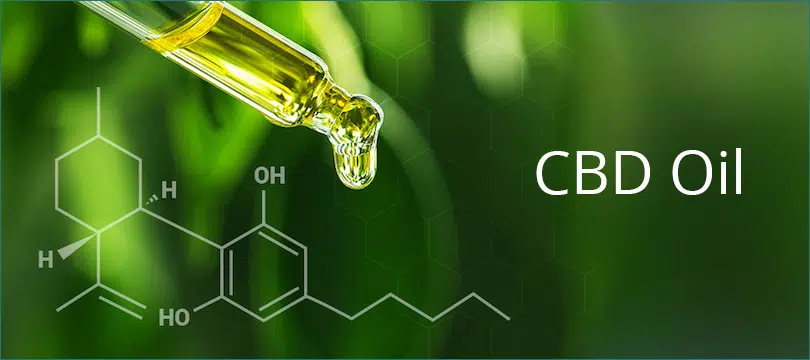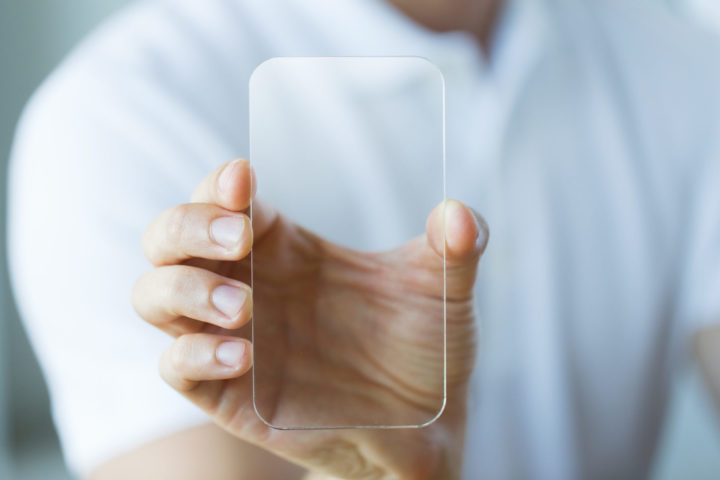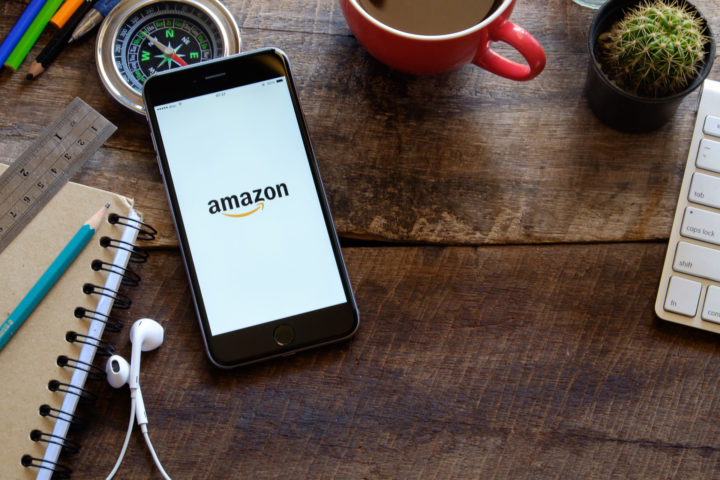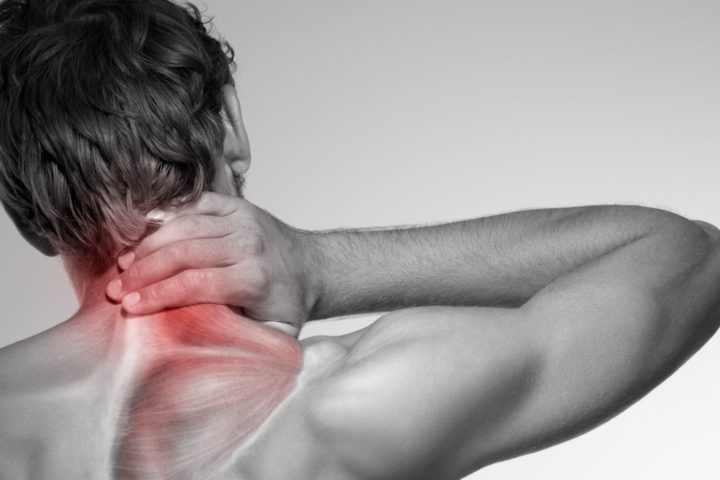CBD is short for cannabidiol and is a 100% naturally occurring compound found in the hemp plant. The hemp plant is part of the marijuana family which has created some confusion over its legality. The Farm Bill passed in 2018 allows the hemp plant to be grown and harvested legally in the United States because of its low THC content (the ingredient in Marijuana that creates the high). You can see from the picture why there is so much confusion with hemp as it looks very similar to Marijuana.
Why are people using CBD products? Does CBD cure or treat specific diseases or ailments?
While the Federal Drug Administration (FDA) has yet to provide clear direction for the CBD industry, they have issued explicit directives regarding the legality of CBD marketing claims. Manufacturers or merchants of CBD products are not permitted to make claims that CBD can prevent, cure, mitigate or cure diseases. No products regulated by the FDA can make these types of claims unless supported by sound scientific evidence. At this point in time, there is a dearth of scientific evidence corroborating the massive amount of anecdotal evidence supporting the impact of CBD products. It will likely take years to develop the kind of evidence required by the FDA to substantiate the efficacy of CBD in certain disease states. Any company or alleged expert making outlandish claims should be monitored closely.
Despite the lack of wide-ranging, comprehensive scientific research, there have been many targeted studies researching the effects of CBD for conditions such as anxiety, stress, pain and sleep. Those studies coupled with anecdotal evidence give patients and healthcare providers great hope that CBD may be a safe and effective alternative to traditional treatments that have failed to provide patients with relief without negative side effects. However, it is imperative that consumers understand there is not yet enough definitive data to say with utmost confidence that CBD will treat any specific disease state or conditions.
The consumer must also keep in mind several critical pieces of information about CDB:
- CBD is a plant based, homeopathic product, and results will vary per person;
- All consumers should first consult their physician prior to using CBD products; and
- Once consumers choose to use CDB products, they should consult with healthcare experts such as pharmacists to address optimal dosing and administration route.
The bottom line is that using CBD products as part of a patient’s healthcare regimen is more of an art than a science so caution and patience are needed when starting this product.
How are CBD and hemp related?
CBD products are derived from the hemp plant, which is a member of the Cannabis family, more specifically the Sativa species. Historically, the fibers of the hemp plant have industrial uses and are found in a wide array of products such as rope, fabrics, fiberboard and paper. Recently, researchers have discovered that hemp plants also produce CBD in higher concentrations that the marijuana plant, but without the hallucinogenic effects of marijuana.
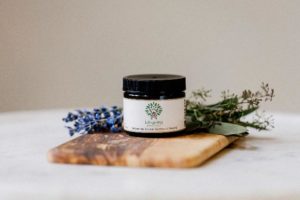
Will CBD products get you high?
The short answer is no. CBD is not marijuana or “pot” and legal CBD products are not harvested from the marijuana plant. Because CBD products contain such a miniscule amount of THC, using CBD products will not cause patients to become “high” like ingesting marijuana does. The legal limit to sell CBD is 0.3% THC which will not get a consumer high, no matter what the formulation is or how much is taken. The marijuana plant typically contains THC between 15%-40% potency which is 1500 times stronger than the CBD formulation. I do exercise caution when answering this question because there are no regulations on CBD production and if your manufacturer doesn’t test their product appropriately you may get more than the 0.3% limit. Keep reading to get expert advice on how to purchase the best CBD products that are safe and effective.
Is there controversy surrounding CBD products?
Yes, there is a lot of confusion and controversy over this product. Some states have legalized the sale of CBD and others have restricted its use or made it illegal. Because of its relation to the marijuana family, many lawmakers, healthcare providers and even the general public show some resistance to the legalization and usage of CBD products. However, the tide appears tom be changing as patients are increasingly reporting positive impacts of CBD on their health and wellness.
What makes CBD so special?
Part of the magic of CBD comes from the fact that the hemp plant contains 113 cannabinoids (other forms of CBD in the hemp plant) that have shown to have beneficial effects on a wide-ranging amount of physical and mental health in both human beings and some animals. Additionally, the hemp plant contains flavonoids, terpenes and minerals, which also work to keep you healthy. Hemp is a dense and unique form of nutrition. The combination of cannabinoids with the other components of the hemp plant work best together than they do alone; this is called the “entourage effect”. When purchasing CBD products, be sure to look for labeling that states “full spectrum” or “broad spectrum”. The various cannabinoids all have different impacts on the body so patients have the best chance of experiencing health benefits by keeping all elements of the plant together.
How expensive is CBD?
It is a fairly refined process to produce CBD, so it can get expensive depending on the manufacturer. The most common sublingual oil which works for most people (500mg) should be around $60-$70.
How does a consumer know a CBD product is safe?
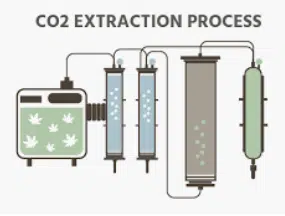
- Confirm that the hemp was grown in the U.S.
- Ensure post-production testing is done to indicate the proper amounts of CBD and THC, and to eliminate any potential toxins from the soil. (Lifegiving Botanicals provides access to testing data through the QR codes on each box).
- It should be organically grown (non-GMO).
- It is harvested using the supercritical CO2 extraction method. Below is a simplified version of the process. There are many safe methods to extract CBD from the hemp plant, but CO2 extraction is very safe but can be quite complicated. The machinery is expensive and the process complex.
- All the components of the plant are used (full-spectrum or broad-spectrum).
- The farm that produces the CBD is associated with or certified by a national hemp organization or adheres to state agricultural guidelines.
How do I know what form to use or how much to take?
This can be a complicated question and if a consumer has any uncertainty about dosage or formulations, I strongly encourage you to discuss the same with your healthcare providers. While the FDA has been discussing and considering CBD products and production, the administration has yet to establish standards for CBD products. Because of the lack of Federal guidance, we cannot say with certainty what dose will work each consumer. However, others in the industry use the loose guideline of dosing approximately 1mg of CBD per 10mg of body weight. For example, a 150-pound adult would take 15mg of CBD per day. Additionally, topical and oral formulations may be given together for added benefit.
I recommend all patients begin using CBD products by micro-dosing because every person’s endocannabinoid system responds differently. I recommend that consumers start with approximately half the recommended dose in the morning for approximately 1 week and keep a log of the effects of the CDB, both positive and negative. In particular, pay attention to side effects such as stomach upset or vivid dreams. If a consumer can tolerate the micro-dosing over a 1-week period, the next step would be to move up to a full dose in the morning or split the dose in the AM and PM. In my experience, most people can increase to 2 or 3 times the recommended dose depending on sensitivity to the medication. It is critical to note that because there are no clear roadmaps for CBD products at this time, all consumers should pay close attention to their bodies and how they feel in the early stages of usage.
Another common question is what the milligram (mg) amount means on the bottle. Most CBD products list the total amount of CBD on the outside of the bottle, so you have to divide that number by the total volume in the bottle. For example, a 500mg bottle of sublingual oil usually has 30ml, so 500/30 = 16.7mg per dropper (which is approximately 1ml).
Why choose CBD products from Lifegiving Botanicals?
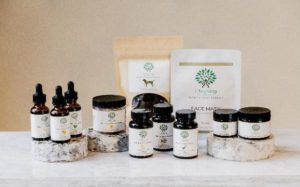
In my 27 years of pharmacy practice, I have never witnessed such a phenomenon of hope with a non-traditional medication. I have been privileged to provide hundreds of in-depth consultations to patients with a myriad of health struggles who have found relief with CBD. My unique viewpoint on and expertise in CBD is not being shared anywhere else. When deciding the CBD company with which I wanted to partner, I insisted on only the highest manufacturing and production standards. I am confident that Lifegiving Botanicals is the best at providing the most comprehensive, reliable CBD care for each customer.
Lifegiving Botanicals’ CBD products offer the following to give our customers utmost confidence they are getting the best, most-reliable CBD products on the market:
- Hemp grown in the USA – look for certification that the grower meets the farming standards set forth in their state.
- Organically grown Hemp – ensure that no chemicals or pesticides are used in growing these crops.
- Certified lab reports on each lot of CBD Hemp Products – look to verify amount of CBD in each bottle and also eliminate the potential presence of impurities or toxins from the soil
- Nano-emulsion technology – increases bioavailability (amount of drug in your bloodstream) and also improves palatability. Name of the game in the CBD world is absorption.
- Extraction Method – CO2 extraction is preferred method and safest way to extract CBD from hemp.
- Customer service – does you product have a legitimate website that provides top quality customer care? Do they medical experts with industry expertise to advice on how best to take this medication?
When you choose Lifegiving Botanicals, you are trusting a company that will be there for you as you navigate finding the best, most effective CBD product to help you achieve optimal health and wellness. We believe if our customers have access to concise and up to date information from experts they can rely upon, they will make decisions that are well-informed and best for them. You can rely on our products to provide consistent results at a reasonable price. And unlike many CBD products, Lifegiving Botanicals has developed products that taste good too!
Once you sign up on our website, I’ll send you my exclusive dosing chart and CBD 101 document. We will also keep you up to date on industry news and provide updates on how to continue to get the most out of your CBD. Let me be your personal corner drugstore pharmacist and CBD guide, I am here to help YOU.
